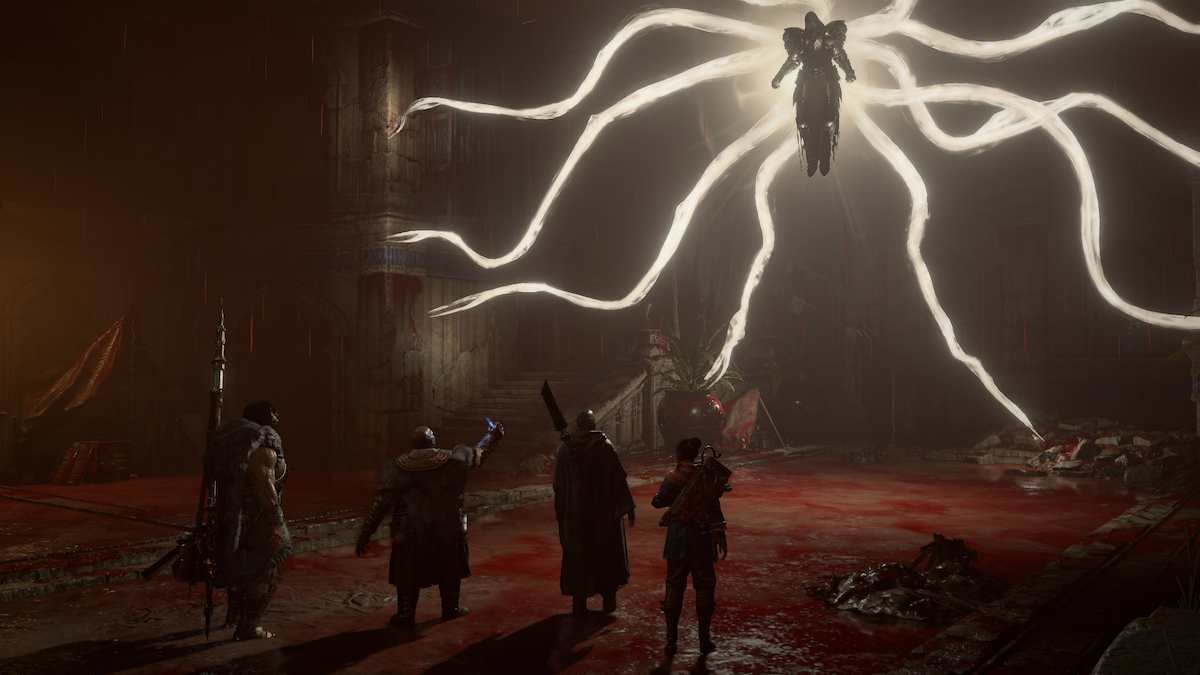Is the endgame content your endgame?
When I took on review duty for Diablo 4, I knew it would come with some controversy. As someone slightly more critical of the game than the average consensus, I expressed concern with the online requirement and the live service nature of the game. Yet one conversation I absolutely didn’t expect to see post-launch was about the state of the content itself.
Though the game’s barely a week old, the endgame of Diablo 4 has sparked fierce debate. From what I’ve observed, opinions fall into two camps. On one side, you have people who sped through the campaign to get to the endgame. Many here insist that it’s too repetitive, funneling players into a couple of types of content without any notable variety. Others say that the crowd who rushed to the endgame got what they deserve since they didn’t bother to enjoy the journey along the way. Essentially, if you didn’t bother to enjoy the main course, don’t complain if you’re hungry after dessert.
For me, it’s wild to see this conversation pop up. I’ve probably played the game for 50 hours if we include the review period, and I’m already satisfied with it. A Link to the Past inspired me to argue for quality over quantity some months ago, so I’m happy to say I’ve gotten enough entertainment out of Diablo 4 to call it worthwhile. But even if the way I play the game completely differs from someone who just wants to race to max level, I still find it fascinating how different perspectives can completely change the way we look at a game.
Let’s explore this topic together.
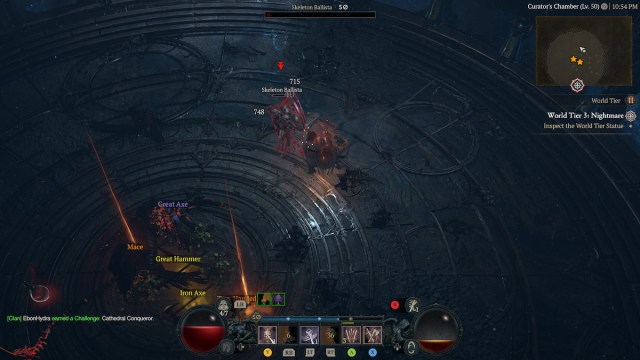
“Endgame is when the real game starts”
If you’re into gaming enough to read a site like Destructoid, you’ve probably heard variations of this sentiment. Many MMORPG players will proudly say their game really starts once you reach max level. Heck, titles like Borderlands 2 literally say this in the game. To be charitable, I think the intended effect of these words is “Oh, you’re having fun now? The game’s only going to get better from here!”
In actuality, years of “endgame is when the game starts” has created some deeply negative conditioning. After all, if the fun part of the game is potentially 40 hours in, why wouldn’t you just rush there? This is prevalent in MMORPGs, where the crunchy gameplay of coordinating with friends to take down raids is usually reserved for the end. And since Diablo 4 is now riding an awkward line of kind of being an MMORPG but also kind of not, I can understand why players would approach it that way.
In truth, if something straight-up isn’t fun for such a long period of time, that isn’t a player problem. That is a game problem. If you assume you won’t have fun until endgame, maybe you should play something else. For example, the “It’s not good for 40 hours” argument was often thrown around for Final Fantasy XIV. This caused the developers to take some drastic measures. The team cut huge swaths of the base game, remade several dungeons, and offered the whole thing for free.
Clearly, they didn’t feel happy treating their early game like a wall, and we should hold what we play to the same standard.
With the limitations of technology two decades ago, we can see why “the game starts at endgame” was a comfortable mantra for online games. However, game design has evolved since then, and we’ll miss out on great experiences if we assume so much of them will bore us. To this extent, I can understand why someone would feel mad that others are speedrunning the campaign of Diablo 4.
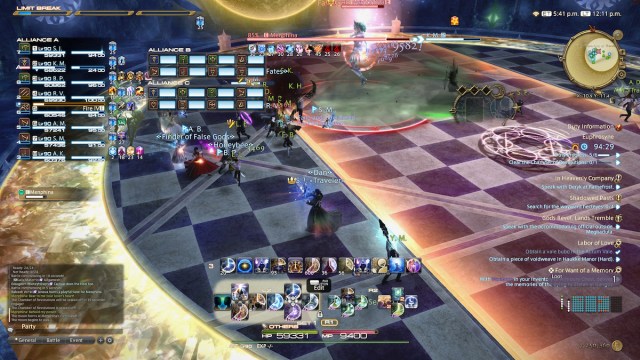
Endgame content offers its own experience
Having said all that, I also get why someone would want to get to endgame as fast as possible.
In a good endgame, the world becomes your oyster. You’ve unlocked everything, you’ve finished the story, and now you can focus solely on becoming stronger. In a series like Diablo, early progression differs dramatically from the endgame.
Initially, you’ll pick gear with better numbers. Later, you’ll equip gear that makes one skill gain an additional effect where enemies explode after two seconds, which synergizes perfectly with your other gear that arguments your passive so exploding enemies explode three more times, which really cranks up your main skill that gets a +30% damage bonus for every explosion in the last ten seconds. Or maybe the build where enemies freeze instead of explode could be considered “better.”
A good endgame can provide an engaging, long-term gameplay loop as you inch closer toward a “perfect” build. And watching your character take on greater challenges with every increase in power can feel remarkably satisfying. Maybe the core gameplay won’t change much from the early or mid-game, but the sense of progression completely differs. So for someone specifically looking forward to that end of the experience, I can understand the disappointment of never finding it.
Of course, I can’t really say for myself if Diablo 4 fails or succeeds in its endgame loop yet. I’m just taking my time and enjoying the game until I get there, which makes it easier to accept whatever state it’s actually in.
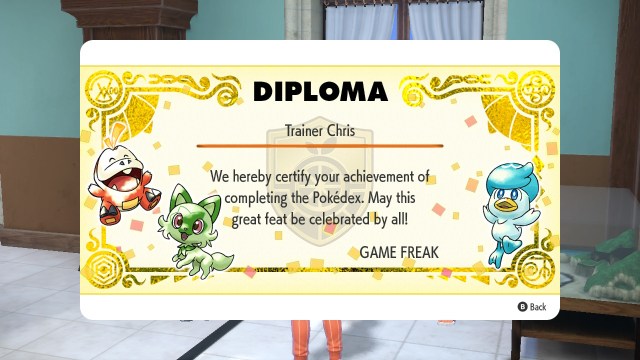
Finding your own way to play
I’ve always been a completionist. Pokemon Red was the first game to ever inspire me to “100%” a game, what with all the marketing about needing to catch ’em all. Since then, I haven’t cared so much about getting something specific out of a game, but just seeing everything it offers.
This is why I still feel excited to explore a game like Diablo 4, despite needing to start my character from scratch. I love uncovering all the corners of the map and completing side quests. I adore finding Lilith Statues in the wild and conferring with others on where to find more. Even the prospect of replaying the game with different classes and builds sounds exciting to me. Every aspect of the game may not connect with me, but I at least want to experience them for myself.
I don’t mind taking my journey slower and savoring the experience. Since I’ve taken up employment at Destructoid, I’ve realized how special it is when a game really connects with me. I want to enjoy those moments while they last, and I’d hate to ruin the fun by racing to see what’s around the corner.
If we visualize games as mountains to climb, some want to see the view at the top while others enjoy the journey itself. I’m the person who’s off in the woods somewhere because it’s a beautiful day outside and someone told me I could find mushrooms out here. And you know I’m not going to miss an opportunity to snap a photo of a cool mushroom.
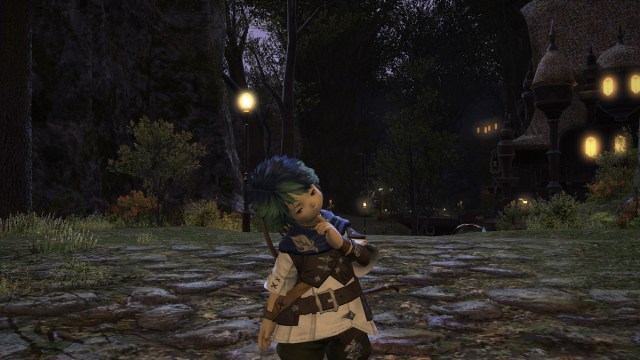
Let’s hear from you
My thoughts are slightly more scattered than my usual opinion piece, but honestly, that’s deliberate. While I know the way I like to play video games, seeing this conversation really sparked my curiosity. Sure, I’ve framed this article around Diablo 4, but discussions surrounding endgame content have existed long before now. Heck, I remember people told me I hadn’t even experienced Final Fantasy 7 unless I defeated Ruby Weapon.
So this is where I ask you, Destructoid: how much do you value endgame content? Do you want a game to provide a fun loop that can keep you engaged for dozens of hours? Will you drop a game as soon as you complete the main story? Or maybe your expectations depend on the genre of the game. There are no wrong answers unless you slam your head on your keyboard and type an incoherent string of letters. That might provoke Professor Tim to give you a failing grade.
Regardless of your take, I hope you enjoy the games you like and accept other perspectives. In an ideal scenario, maybe approaching a game from a new mindset can turn it into a new, exciting experience. That said, I’m still not going to play a game that only gets good at 40 hours. I’d rather beat A Link to the Past five times instead.
